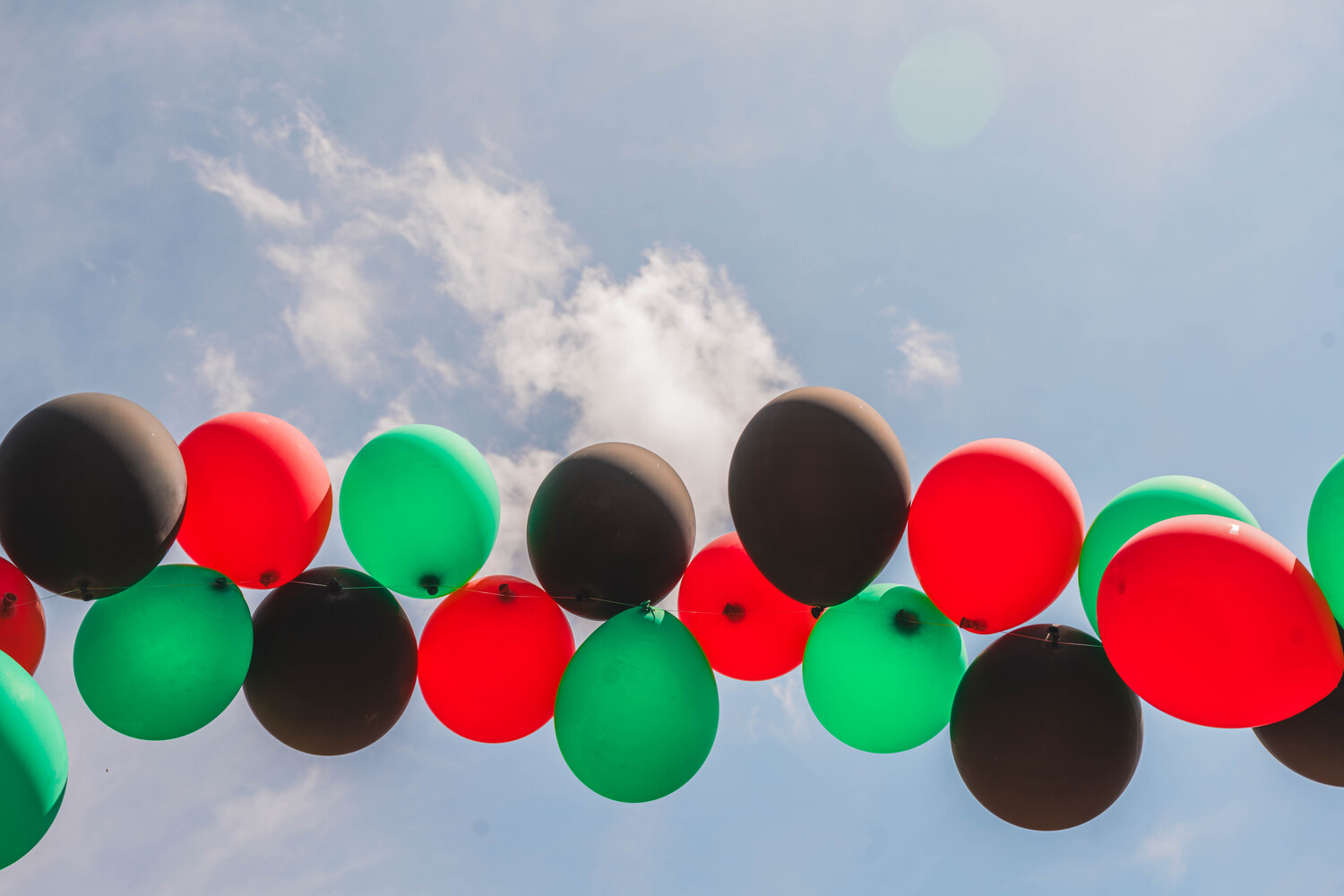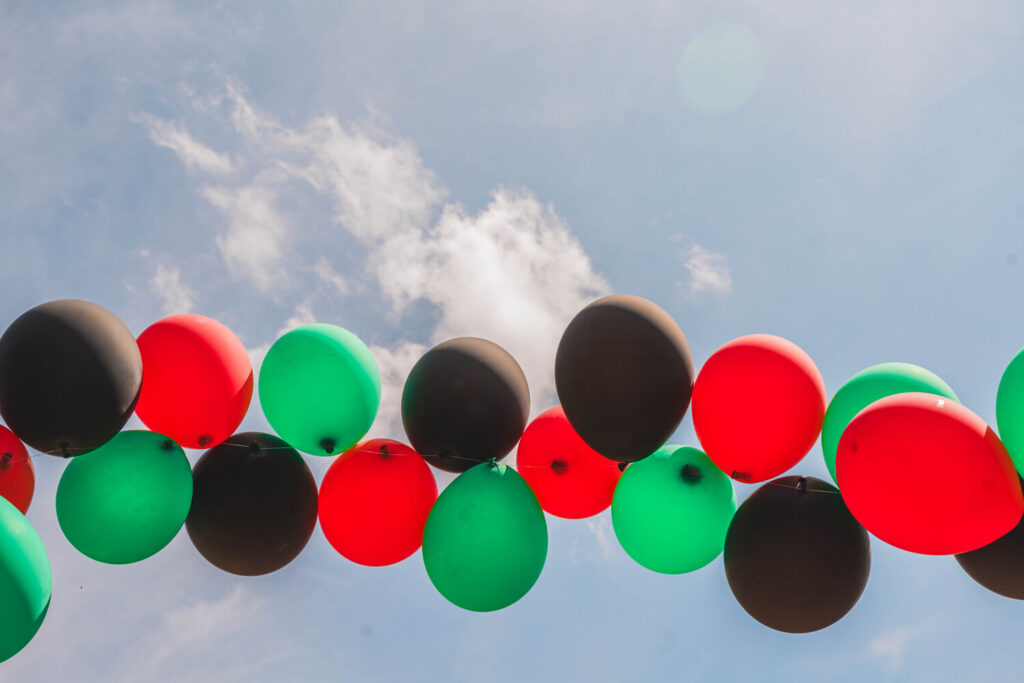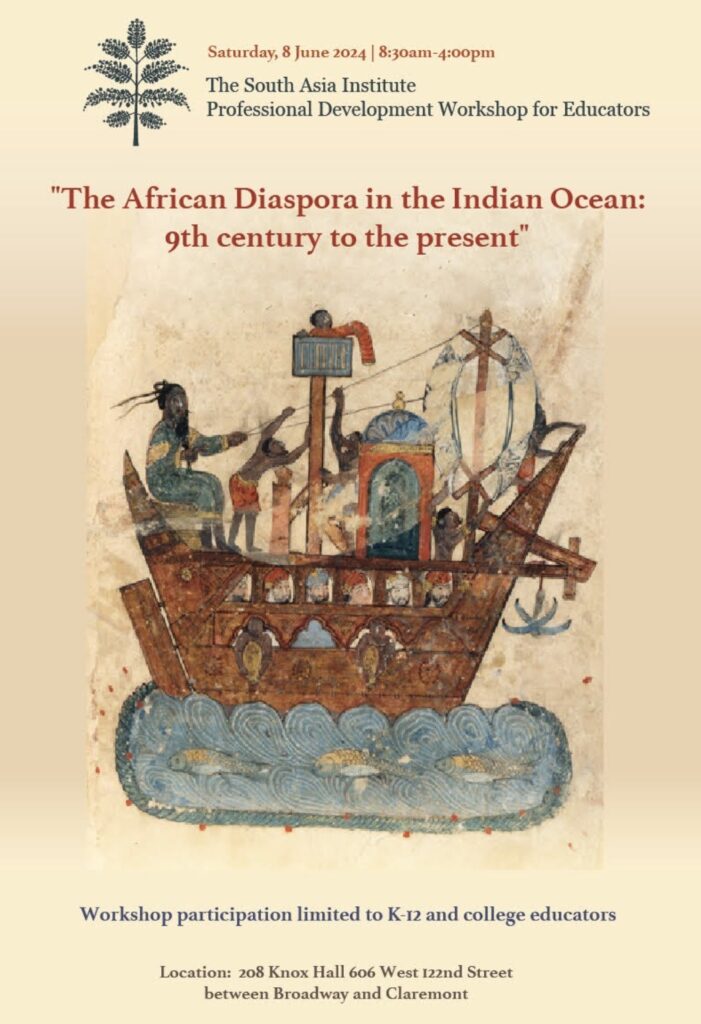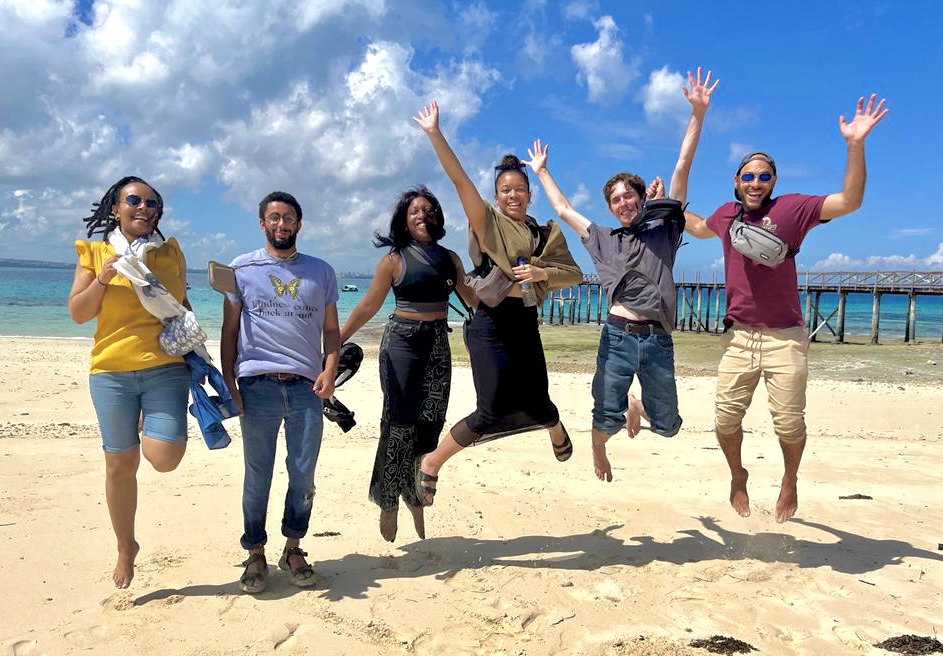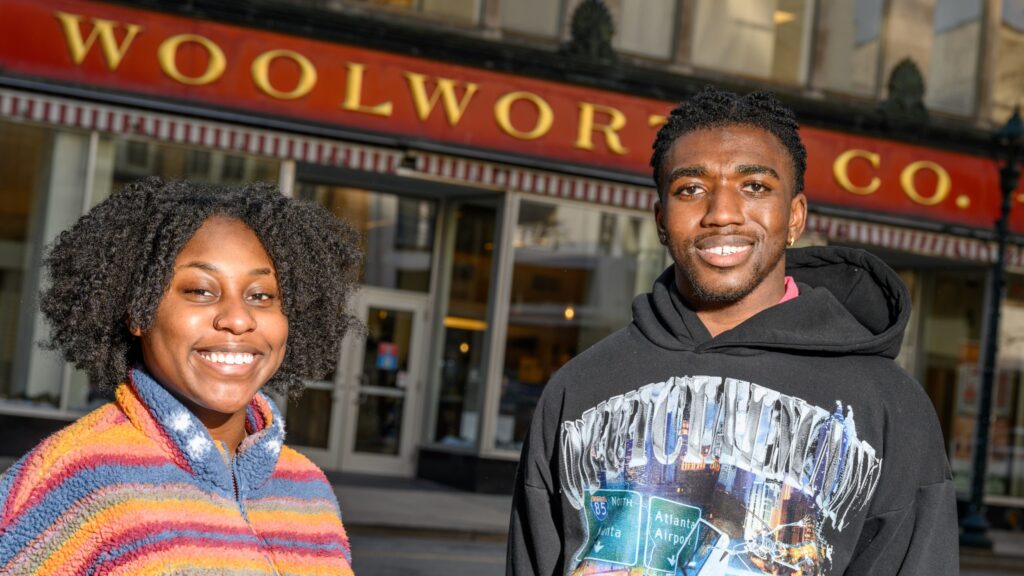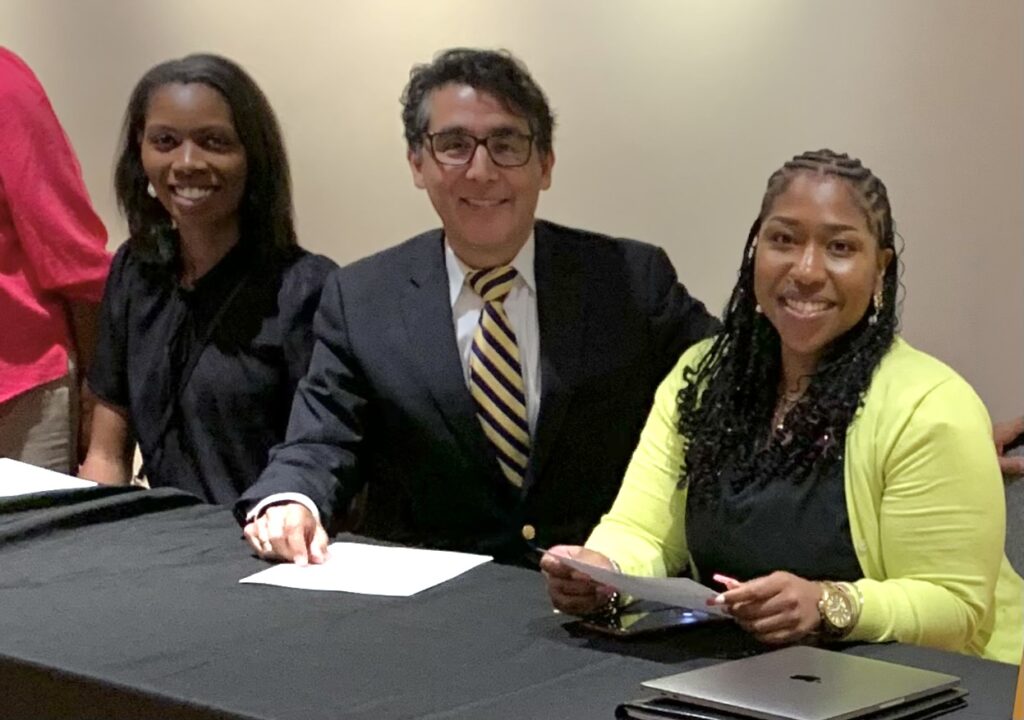The Freedom Festival is a celebration and an exploration of the relationship between freedom and independence. It lasts from Juneteenth (June 19, marking the end of slavery in the U.S.) through Independence Day (July 4, marking the independence of the U.S. from the British Empire). It consists of live, virtual and hybrid events from all over the U.S. and beyond. This year, AADS, in partnership with Lloyd International Honors College’s Let’s Learn! The World as Classroom, is contributing three online classes/conversations to the Freedom Festival. Everyone is invited to attend! See below to register and click here for Freedom Festival offerings.
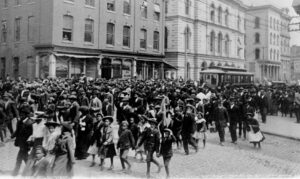
Discovering and Sharing Our Untold Histories
Dan Friedman, Ph.D.
Friday, June 21, 8:00 pm – 9:30 pm, Eastern U.S. Time
Our communities and families are repositories of history. This history is not usually written up in textbooks. Often, we don’t even share it with each other. Now that the teaching of Black History is under attack, it is more important than ever that our untold histories are heard. This story-telling gathering is an invitation to share how your communities have celebrated Juneteenth over the years and to introduce each other to the histories our parents or grandparents made in the Civil Rights Movement, the Labor Movement, the Peace Movement, the Women’s and Gay Liberation Movements, the Black Lives Matter movement and beyond.
Join Dr. Dan Friedman, historian, playwright, and life-long community organizer in this gathering to speak-out loud and proud our communities’ and families’ political histories. Come prepared to share your story, a photo (if you have one), and, if they’re down for it, bring you family along!
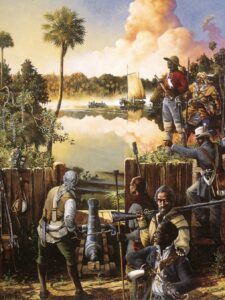
The “Negro Fort” at Prospect Bluffs, Florida
Brian Mullin
Sunday, June 23, 1:00 pm – 2:30 pm; 6:00 pm – 7:30 pm London time; 10:00 am -11:30 am, Pacific U.S. Time
Did you know that a prosperous, self-governing community of free Black people existed on American soil before the Civil War? This fascinating but little-known chapter in African-American history took place in the mostly unregulated swamplands of Spanish Florida, before the territory became part of the United States. At the end of the War of 1812, a regiment of Black soldiers who’d fought for Britain became instilled with abolitionist ideas and were left in command of a military fort at Prospect Bluffs, FL. Over its years of existence, the Fort grew to encompass houses and farmland and was a hub of trade with the local Seminole tribes. It also became a magnet for enslaved people across the border to flee plantations in Georgia, Mississippi, and Alabama — which led to the so-called ‘Negro Fort’ becoming a target for US military forces. The Fort’s destruction, however, was just one part of this community’s incredible story: the surviving inhabitants embarked on an epic journey across decades, down the Florida peninsula and into the Caribbean, clinging to papers and promises of freedom from the British Crown.
Theatre-maker Brian Mullin first researched the Fort and its community on a Hearst Fellowship at the American Antiquarian Society in 2018. Based in the UK, Brian has just received seed funding from Kings College London, along with director Tian Brown-Sampson, to begin developing this transatlantic story into a theatre piece that also explores its resonance to later histories of Black Caribbeans and the British Empire.
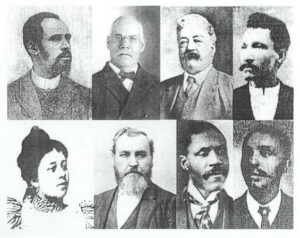 Black Populism in the New South: Post-Reconstruction Movement-Making
Black Populism in the New South: Post-Reconstruction Movement-Making
Omar H. Ali, Ph.D.
Sunday, June 30, 4:00 – 5:30 pm, Eastern U.S. Time; 1:00 pm – 2:30 pm, Pacific U.S. Time
In the decade following the collapse of Reconstruction a new movement arose in the South comprising black farmers, sharecroppers, and agrarian workers—a Black Populist movement. Organized through the Colored Farmers Alliance, among other black-led labor groups, mutual aid associations, and black churches—and then expressed through the People’s Party, African Americans across the South created an independent political movement of their own which at times connected with an adjacent white Populist movement, and at other times diverged sharply from it. In this lecture we will explore this history.
Led by Dr. Omar Ali, author of In the Lion’s Mouth: Black Populism in the New South, 1886-1900, who serves as a dean and a professor of history and African American & African Diaspora studies (AADS) at the University of North Carolina Greensboro.

